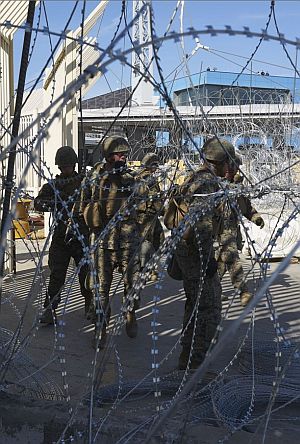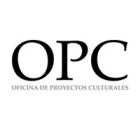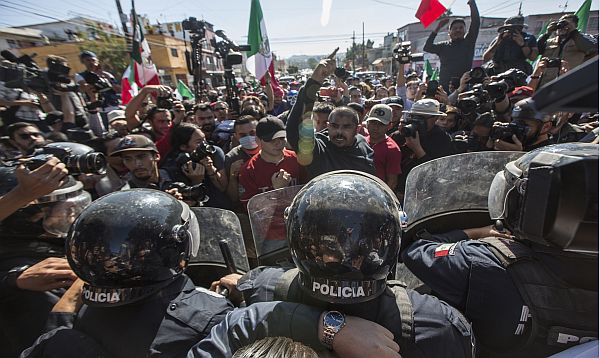UPDATE: Due to the popularity of "Tierras Prometidas," the exhibit has been extended through July 27, 2019.
Puerto Vallarta, Mexico - On the eve of the 70th anniversary of the Universal Declaration of Human Rights, Oficina de Proyectos Culturales organized Promised Lands, an exhibition about the global refugee crisis. Opening February 23, Promised Lands examines issues of global migration, often forced, from Syria to Cuba, to the recent refugee caravan from Central America through Mexico.
Mexico and the European Union faced similar situations as tens of thousands of Honduran refugees flooded the southern Mexican border in a march to seek political asylum in the United States. The motivations and challenges for these migrants are comparable to those in other parts of the world: war, violence, and extreme poverty push them on a dangerous journey that often ends in tragedy.
It is crucial that we as a society begin a dialogue and become aware of these experiences; OPC would like to start that conversation through this exhibition.
 |
The global refugee crisis is worsening daily, and 70 million refugees have been forced to leave their homes by war and poverty. Our living environment is constantly being degraded, and the ecological balance is ever more fragile. Armed conflicts persist and potential political crises lurk; regional instabilities grow more acute; autocratic regimes brutally impose their will, while democratic governance is in decline.
The end result is that individuals are deprived of the right to live, denied freedom from fear, and freedom of expression, or denied the rights to maintain their living environment and develop. . . The concept of human rights needs to be revised. - Ai Weiwei, 2019
The exhibition will also include a video installation titled Mare Clausum, a powerful and dramatic work by Forensic Oceanography and Forensic Architecture that documents the November 6, 2017 rescue by the NGO Sea Watch as it confronts a Libyan Coast Guard patrol vessel, both ships were simultaneously directed towards a migrant boat in distress in international waters.
The migrant caravan, as its come to be known, has made headlines across the world since October of 2018, when thousands of Central American refugees, including men, women and children, set off walking through Mexico in the hope of reaching the U.S. in an attempt to escape from the extreme violence, crime and poverty in their home countries. Photographers David Taylor and Sean T. Hawkey have been documenting the caravan as it traveled through Mexico and reached the U.S. border and both artists present commanding images of those seeking a promised land.
Artists Fernando Llanos and Jessica Herreman, edited a video with the audio testimonies of people who live on the border and were recorded in Tijuana by the famous Argentine journalist Leonardo Tarifeńo for the realization of his book, No volvás (Don't come back). The video includes impeccable aerial shots of the border wall by Tijuana filmmaker Ricardo Silva (director of Navajazo).
Local artist Davis Birks has constructed an installation, titled Dream Home, which includes a floor plan of a house, useless keys on a single cot, and mirrored walls that reflect the sparse contents of the room; the viewer becomes a participant in a space which strives to create personal empathy with the escalating number of refugees and their plight.
Mobile Consulate by Tijuana based artist Omar Pimienta, is a participatory art action that challenges the notions of citizenships by inviting its participants to become free citizens of a conceptual colony. In order to do so, one must exchange a physical expired passport for another which grants the citizen free entry into "Colonia Libertad."
In his series, Migration, photographer José Hernández-Claire documents the migratory experience in Mexico. His black & white photos show a human perspective, the long journey that migrants from Central America go through to reach the unattainable American dream.
Also included is a 2006 video of a performance by Francis Al˙s. For Bridge/Puente the artist lined 150 boats from Key West, Florida in the direction of Havana, thus suggesting a floating, yet incomplete, bridge between the two shores in the midst of major conflict.
 Located at Juarez #598 at the corner of Aldama in downtown Puerto Vallarta, the Oficina de Proyectos Culturales (Office for Cultural Projects) (OPC) is an independent and non-profit organization dedicated to the promotion of Contemporary Art through exhibitions, round tables, public art initiatives and educational services programs. It was created with the aim of contributing to the reflection on the contemporary sociocultural and artistic environment, with the vocation to share with the inhabitants and visitors of Puerto Vallarta. OPC works with different creators such as artists, architects, curators, academics and writers who contribute to the construction of our notion of the city and contribute to the cultural panorama linked to Puerto Vallarta but of global reach.
Located at Juarez #598 at the corner of Aldama in downtown Puerto Vallarta, the Oficina de Proyectos Culturales (Office for Cultural Projects) (OPC) is an independent and non-profit organization dedicated to the promotion of Contemporary Art through exhibitions, round tables, public art initiatives and educational services programs. It was created with the aim of contributing to the reflection on the contemporary sociocultural and artistic environment, with the vocation to share with the inhabitants and visitors of Puerto Vallarta. OPC works with different creators such as artists, architects, curators, academics and writers who contribute to the construction of our notion of the city and contribute to the cultural panorama linked to Puerto Vallarta but of global reach.



